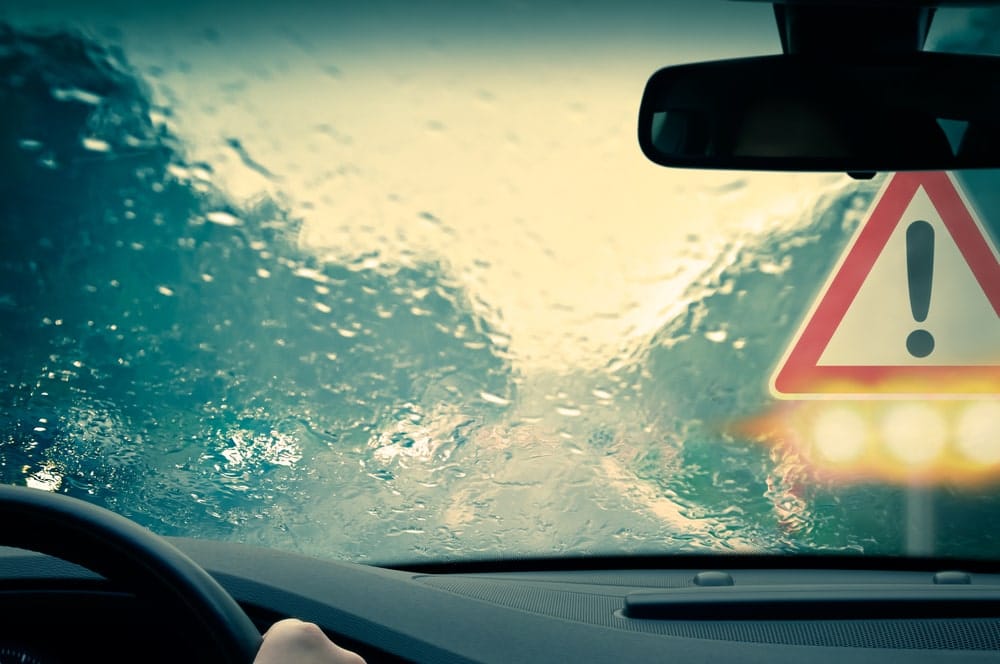According to the U.S. Department of Transportation, roughly 5,891,000 vehicle crashes happen each year in the United States.
Of these, 21% are weather-related. Nearly 5,000 people are killed every year because of driving in poor weather conditions, while over 418,000 sustain injuries.
The numbers paint a rather gruesome picture, one that Florida residents are very aware of, considering the weather here tends to shift rapidly, sometimes with little warning. If you are driving in poor weather conditions, there is a chance of losing control of the vehicle, which can then result in fatalities, injuries, or property damages.
It is in part the responsibility of the driver to take extra precautions when driving in poor weather conditions. We’ve handled many cases where our clients have sought compensation for pain and suffering as a result of accidents occurred under extreme weather conditions, but the best strategy here is to stay safe and try to prevent these incidents as best you can.
As a result, here are our tips for driving in bad weather:
1. Be Ready for Anything
You should always be prepared for adverse weather, no matter where you are driving. Always keep in the trunk of your car some essentials that can help you get through a crisis: extra clothes, blankets, drinkable water, flashlights, sand or salt, jumper cables, and even extra gas.
2. Inspect Your Vehicle
If there is a possibility of bad weather, always inspect your car before you begin your trip, even if it’s just to run a small errand at a supermarket. Check the tires, lights, fluid level, and wiper blades to identify any visible issues and fix them before the trip.
As an extra means of precaution, have your vehicle professionally checked several times a year to be safe.
3. Don’t Rush
A key thing to remember when driving in bad weather is to resist the temptation to speed up. We get it, you probably want to go faster and get out of the road as quickly as possible, but it’s a mistake that can cost you greatly.
Speeding in poor weather can actually increase your chances of having an accident. If the roads are wet or icy, it can be challenging to control the car and hit the brakes if necessary. The vehicle is likely to glide and even collide with other cars or objects on the road (like trees or poles). Be more patient and slow down to give yourself enough time to react in case you have to.
4. Keep Your Distance
Another vital thing to do in these situations is to always keep enough distance between you and other vehicles on the road. That will give you enough time to react in case something goes wrong, while also giving you some distance from accidents that may take place on the road.
5. Hold the Steering Wheel Firmly
You should place a steady grip on the wheel to control the car better, and not make any quick or sudden moves that can lead to dangerous situations. It’s particularly important you don’t neglect this step if the roads are icy, or there is substantial wind, rain, or even snow.
6. No Sudden Moves
In these cases, it’s advisable not to do anything sudden. That includes hitting the brakes too quickly or accelerating out of the blue. Instead, only hit the brakes when you need to slow down. Sudden moves can have a high impact, as you can also catch the drivers behind you by surprise and risk them crashing into you.
7. Prepare for the Environment
You should also take into account the place where you’ll have to drive. For instance, if you are going through a mountain region, you should be prepared for possible avalanches or strong winds, and even black ice if the temperatures drop considerably.
The same principle applies to areas with a lot of rain or even those prone to storms or strong winds.
8. Check the Weather before a Trip
While it is possible for the weather to change drastically with little notice, most forecasts have a high accuracy rate. Be sure to check them before you begin your trip and prepare accordingly, even if the chances of severe weather seem small.
I Was in an Accident because of Bad Weather. What Do I Do?
Unfortunately, it’s impossible to prepare for every possible scenario, and even if you do everything by the book, you can still be involved in an accident partly caused by bad weather.
If that happens, you can seek compensation from the other driver involved in the collision if you can prove they were negligent and are at fault for the crash. However, you’ll have to go through the insurance company, and if their claims officer proves the abnormal weather conditions caused the accident, then it can be determined that all parties involved in the crash are liable for the damages.
However, proving driver negligence can be tricky, and when you add poor weather into the mix, the situation can get even more complicated. You’ll have to create a case that proves a driver’s careless actions caused the collision, and not the environment itself.
To make matters easier, you can hire a personal injury lawyer to represent you. With their experience, it can be a lot easier to gather the necessary evidence and prove you should be awarded proper compensation for your injuries.
What Can a Lawyer Do
Essentially, your attorney will look for any pieces of evidence that can place the fault of the accident on the other driver. Then, they will make the claim that since one party is responsible, the other (you, in this case) deserves to be compensated.
Here are some possible angles personal injury lawyers can take to prove driver negligence:
- Any faulty behavior that is not related to weather. For instance, if the driver was using his phone while driving, the attorney can argue they were not paying proper attention to the road and, as a result, have caused the crash;
- Going over the speed limit;
- Driving with worn tires and wipers;
- Not having the right tires for the weather conditions (particularly when driving on snowy or icy roads);
- Impaired, or reckless driving;
- Ignoring traffic signals or road signs;
- Reckless behavior such as switching lanes without signaling.
Final Thoughts
As a conclusion, know that it is your responsibility to prepare for driving under adverse weather conditions. The best thing you can do is avoid hitting the road at these times, but if you absolutely must, then make sure you are careful.
If you’re the victim of a car accident that is weather related, we can help get you some piece of mind, and the proper compensation. Contact us today for a free case review.


